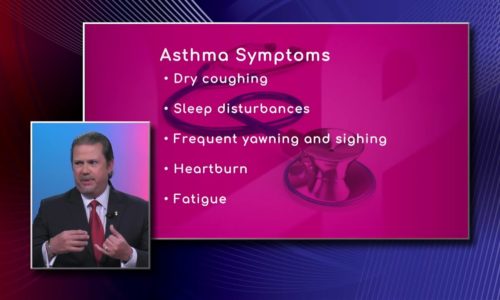The 5 A’s of Smoking Cessation |
The 5 A’s of Smoking Cessation are asking, advising, assessing, assisting, and arranging. “Number one is asking the patient whether the patient smokes or it has smoked in the past and getting details will be important”, explains Dr. Veronica Palmero-Gonzalez, Pulmonologist with South Miami Hospital.
The following is advising the patient to quit smoking as soon as possible, and then it is important to assess the patient’s readiness to quit. “The number 4 will be assisting the patient in quitting smoking, offering some interventions for both behavioral or medications where the patient is most likely to be successful to quit, and lastly arranging follow-up mostly the first week after patient’s quitting date.”
Transcript
Dr. If you would, tell us about these and how they all work together? > So the recommendation to assess they need or that we need to quit smoking it’s usually starts with some questions that you ask the patient. So number one is asking the patient whether the patient smokes or it has smoke in the past being very specific in this point is important since patient may consider smoking one cigarette once a week norther a real habit. So getting details will be important. Then number two will be advise the patient to quit smoking as soon as possible and with that setting up a quick day is the most important first step. Then it’s important to assess the patient’s readiness to quit, some patients may not be ready to quit and in those patients I or people is important to understand what will be the limitation for them to quit right away, to try to assist them. The number 4 will be assist the patient in quitting smoking offer some interventions for both behavioral or medications where the patient are most likely to be successful to quit, and lastly arranging follow-up mostly the first week after patient quitting date is important to continue to help the patient or the person who smokes to be successful in this, in this goal. > Why and I think we touched on this briefly a few moments ago is quitting so hard, is it simply because of society is it because of the drug intake I mean or is it all just all these elements coming together. > Yeah. It’s a combination of all of this together. Nicotine, as mentioned before, is highly addictive if one of the more difficult drugs to quit. It has very significant withdrawal symptoms that makes it hard to to quit, it’s also it gives patients sensation of oneness and decrease anxiety so patients feel medially well after smoking but the other big component of this other than the chemical part of smoking is a habit. Patients that has smoked early in life I created certain habits around the smoking activity and is even when they’re not smoking going into those regular activities making think about smoking at that that makes it more difficult to quit.








